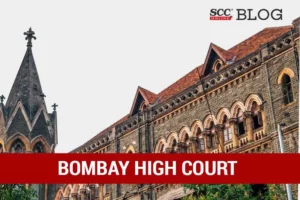The matter was related to the deceased who died after sustaining burn injuries allegedly caused by the accused after some dispute, who were neighbours. While the deceased was still in hospital, her statement was recorded by police and a crime punishable under Section 307 of IPC was registered. She was shifted to another hospital for further treatment but expired on 10-11-2012 and Section 302 of IPC was added. The accused was arrested, and trial proceeded.
Court’s Analysis on Evidentiary Value of Dying Declaration
The Court clarified that the instant case was one based on dying declaration which may solely be made the basis of conviction after qualifying the test of truthfulness, voluntariness and free from suspicion and doubt. It was cautious that in cases of dying declarations, Courts have to be careful while assessing dying declaration, being on guard that the deceased’s statement was not a result of tutoring, prompting or a product of imagination, and the deceased was in a fit state of mind to give dying declaration. The Court referred to Paniben (Smt) v. State of Gujarat, (1992) 2 SCC 474 for Supreme Court’s 10 pointers containing principles governing dying declaration, as relied, and applied in Surinder Kumar v. State of Punjab, (2012) 12 SCC 120 and Madan v. State of Maharashtra, (2019) 13 SCC 464. It further referred to Ganpat Bakaramji Lad v. State of Maharashtra, 2018 SCC OnLine Bom 321 for additional tests to be actuated before accepting a dying declaration. The Court emphasized the aspect of absence endorsement of the dying declaration vis-a-vis appreciation of evidence.
The Court clarified that “Neither the provision of Section 32(1) of the Evidence Act nor any decision of the Apex Court prescribe any particular format in which a dying declaration is to be recorded. It can be oral as well as written. In case of oral dying declaration, the question of existence or insistence upon reading over and explaining the declaration to the deceased does not arise. If that be so, how can such insistence be in respect of written dying declaration? It is not the requirement of any statute or of the decision of the Apex Court that a written dying declaration must contain a column to be duly filled in that the statements of the declarant are read over and explained to him and that he found it to be true and correct. Such a requirement therefore cannot be held as mandatory.”
The Court relied on Constitution Bench’s observations in Laxman v. State of Maharashtra, (2002) 6 SCC 710 regarding doctor’s certification of a dying declaration. It further relied on Vikas v. State of Maharashtra, (2008) 2 SCC 516 respecting the special sanctity accorded to evidence of dying declaration. It was commented that “Section 32(1) of the Evidence Act is an exception to the general rule that hearsay evidence is no evidence. Section 32(1) of the Evidence Act makes a statement of the deceased admissible. Those statements made by a person as to the cause of his death or to any of the circumstances of the transaction which resulted in his death, are admissible when the person’s death comes into question. The essential requirement of such statement to be accepted as evidence would be that the person who makes such statement is under the expectation of death. The special sanctity has been given to such statements as it is believed that a person on the death-bed will not speak lie.”
After such detailed legal backing, the Court perused the dying declarations and related testimonies/statements of witnesses and burn injuries to the upper extremity and concluded that both the dying declarations were proved beyond doubt by the prosecution. The Court found the act in two dying declarations to be different, but the same role attributed to the accused and refused to accept that only on that account of the said chronology, the dying declaration was unbelievable. It further admitted that the prosecution had proved that it was a homicidal death. The Court also highlighted the unexplained fact of how his clothes had kerosene residue, which went against the accused.
The Court therefore concluded that the prosecution had proved the offence against the accused beyond reasonable doubt since it could not find any illegality or error committed by the Trial Court in convicting the accused. Therefore, the Court dismissed the instant appeal.
[Bhagwan Ramdas Tupe v. State of Maharashtra, 2023 SCC OnLine Bom 1554, decided on 28-07-2023]
Judgment by: Justice Vibha Kankanwadi
Advocates who appeared in this case :
For Appellant: Advocate A.B. Girase
For State: Additional Public Prosecutor V.S. Choudhari

